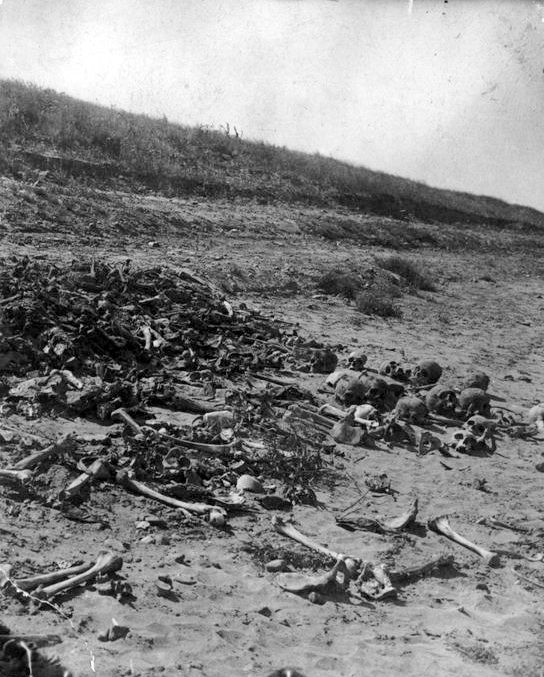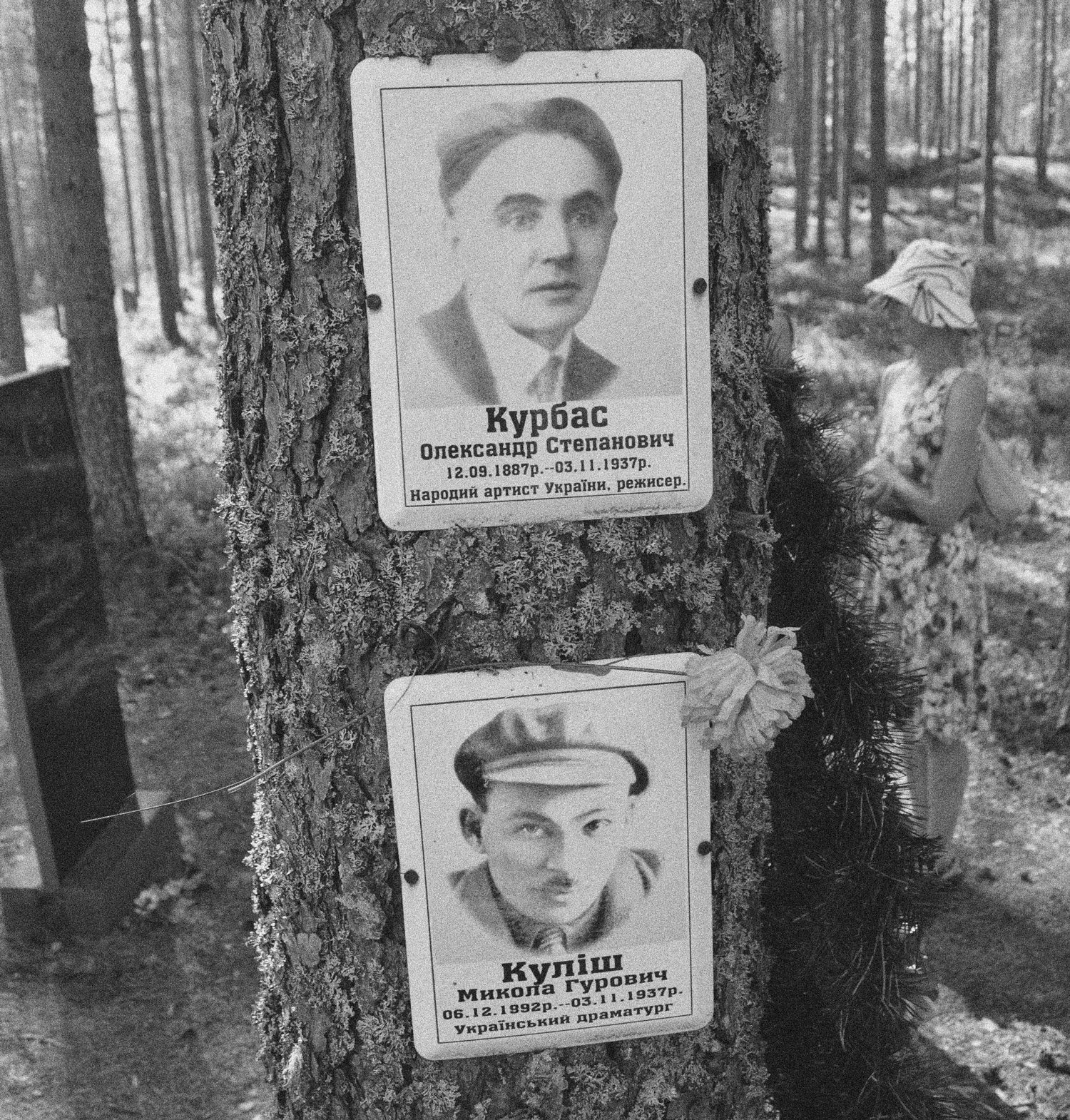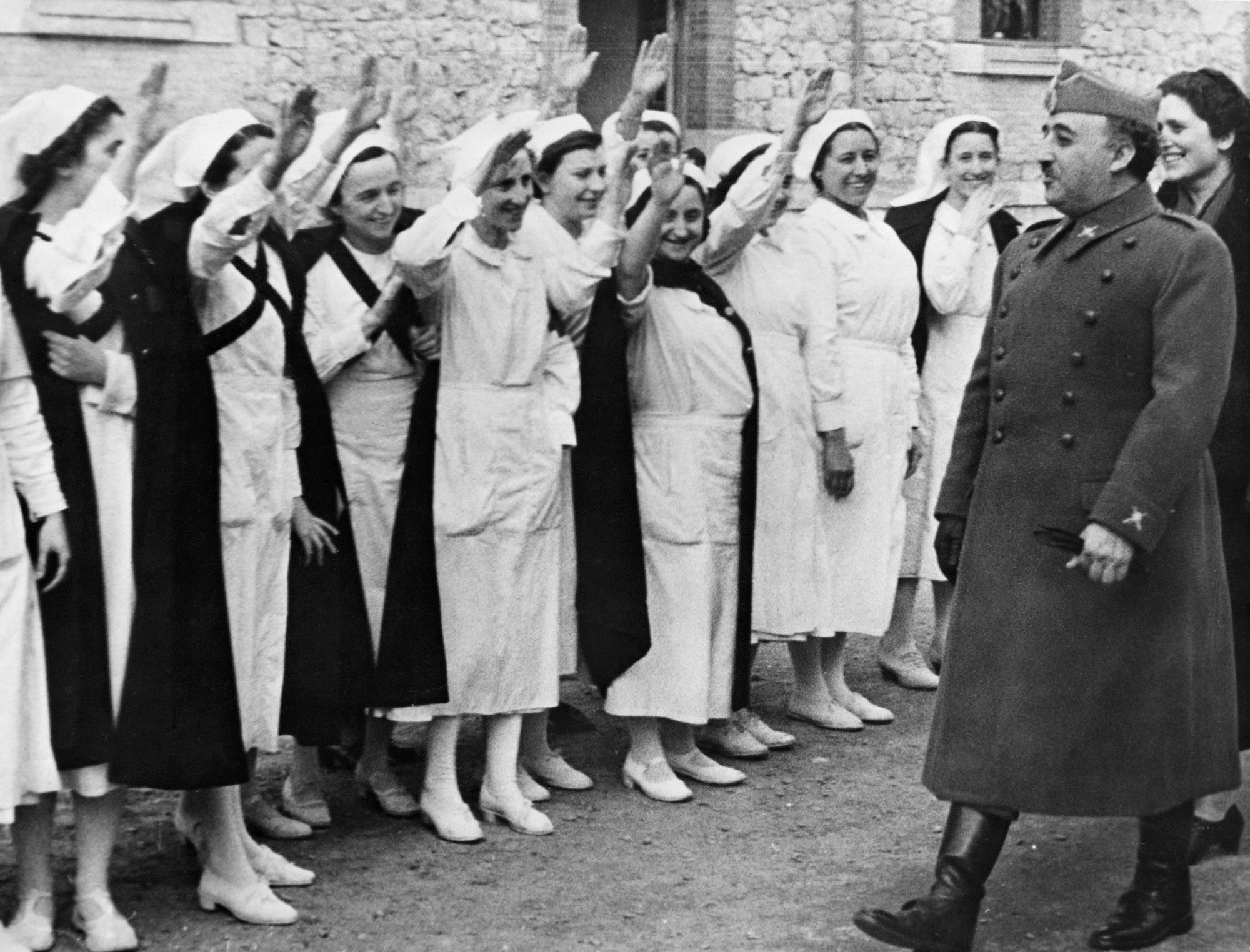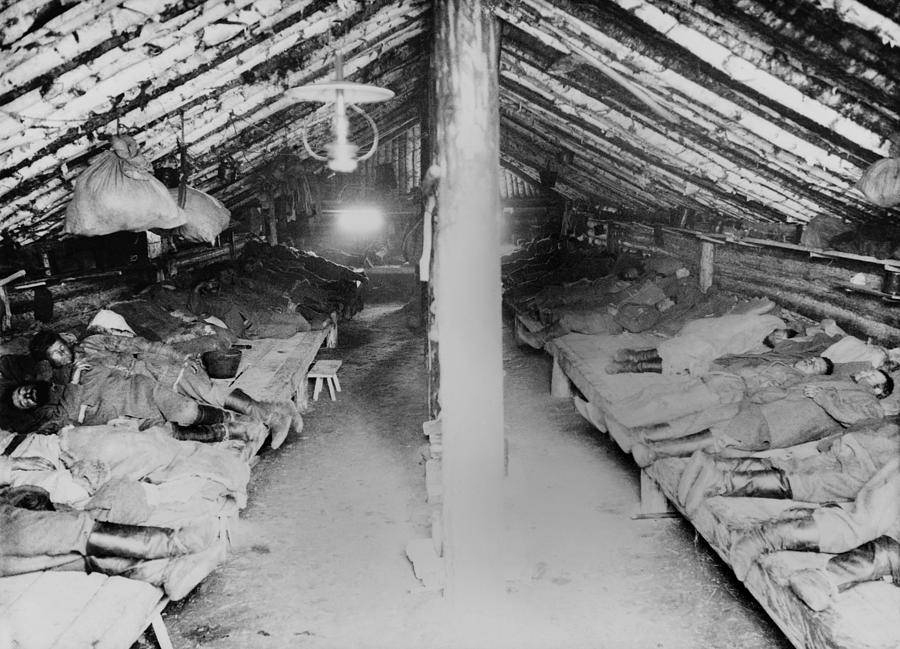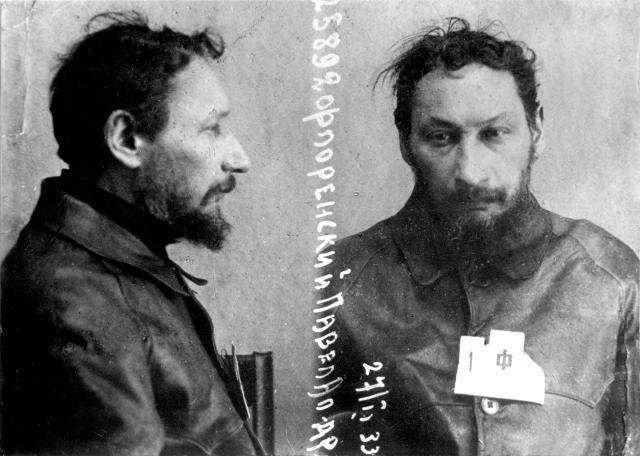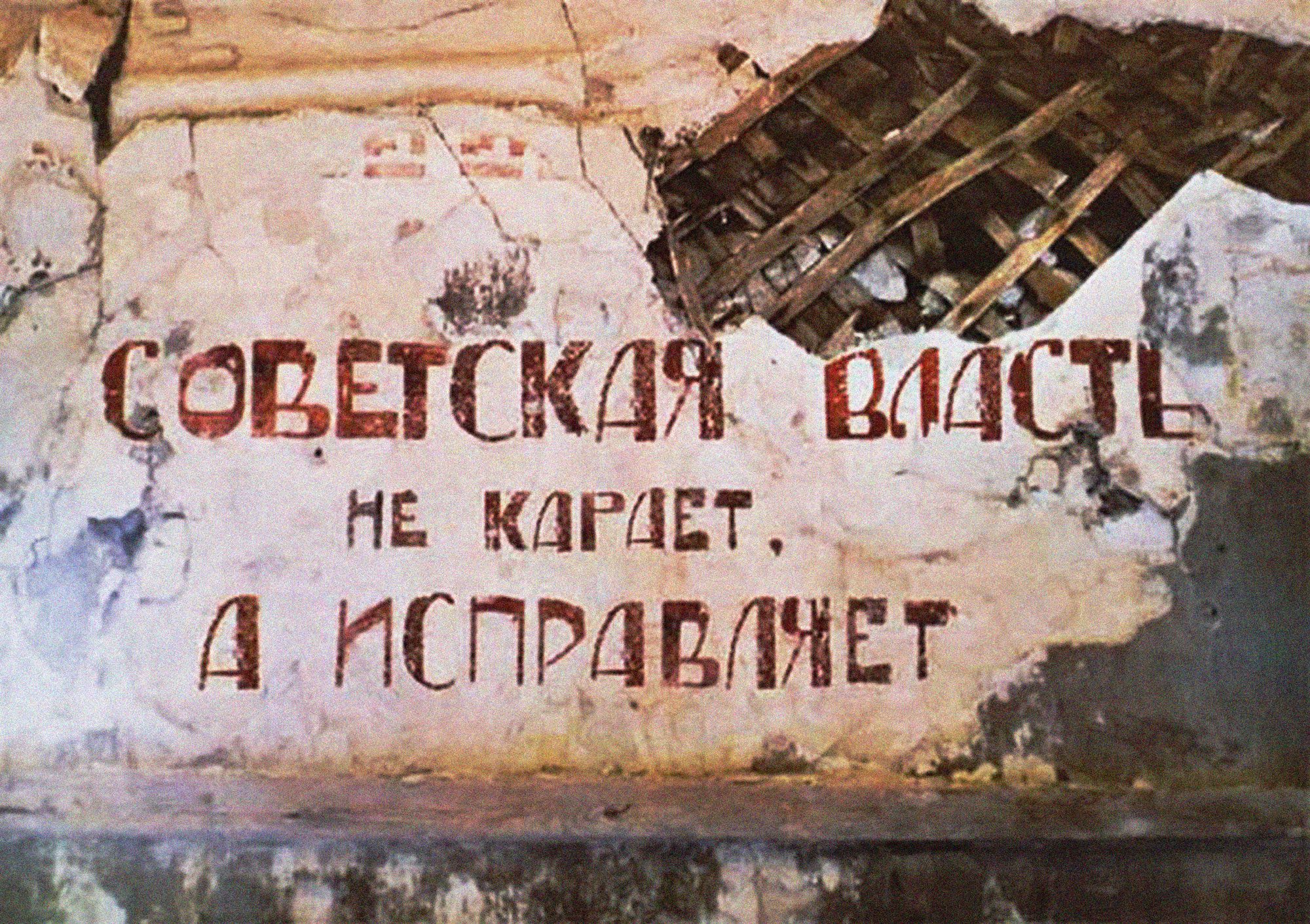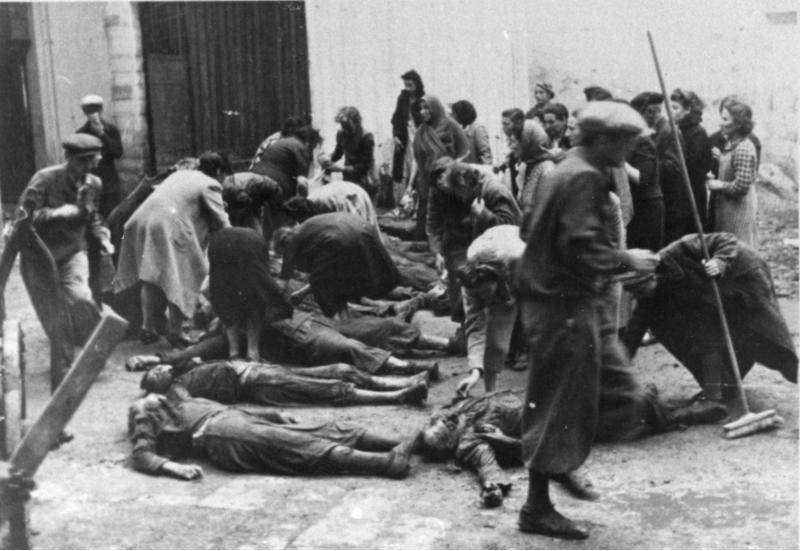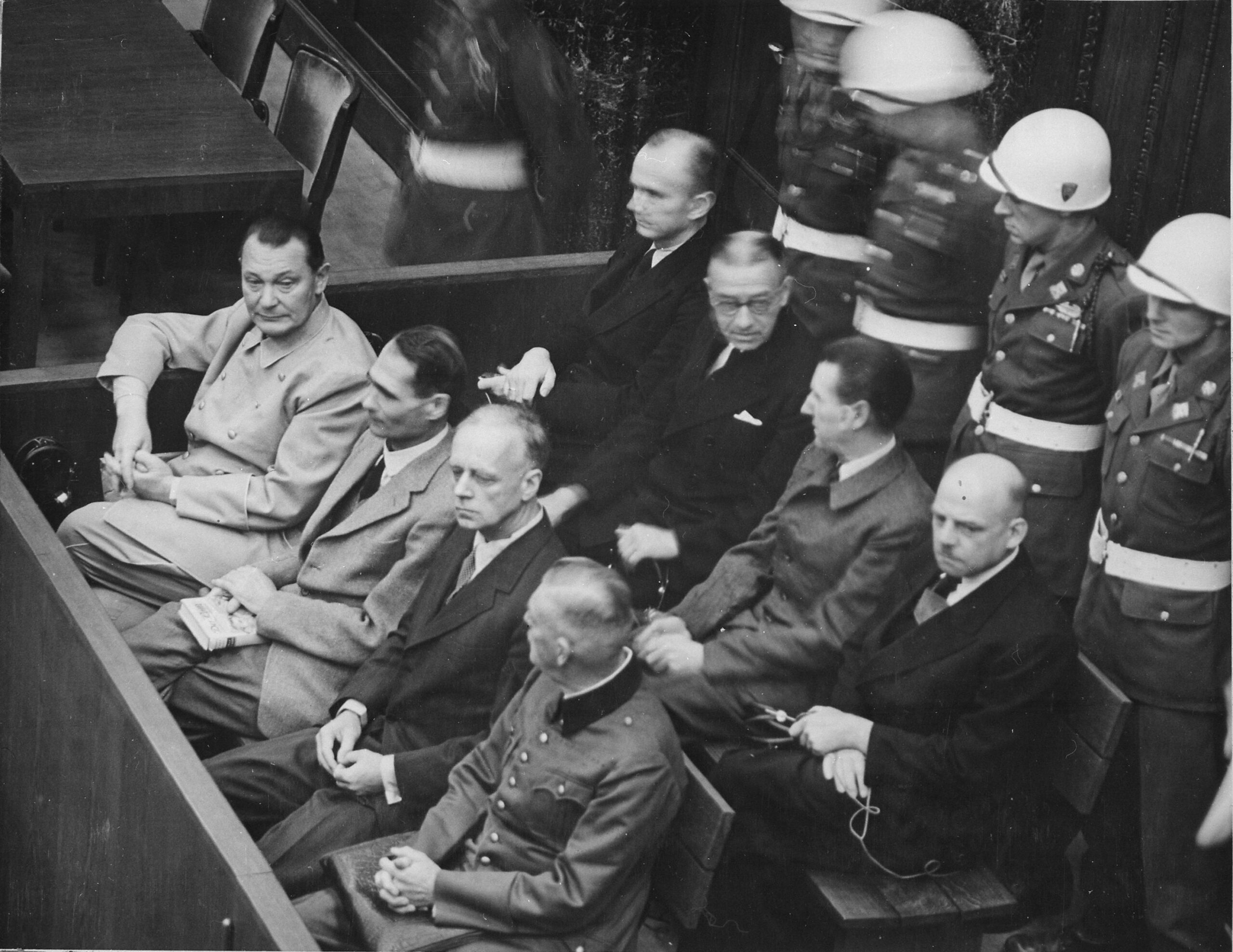War in Ukraine as a Memory War. Which Putin Won’t Win
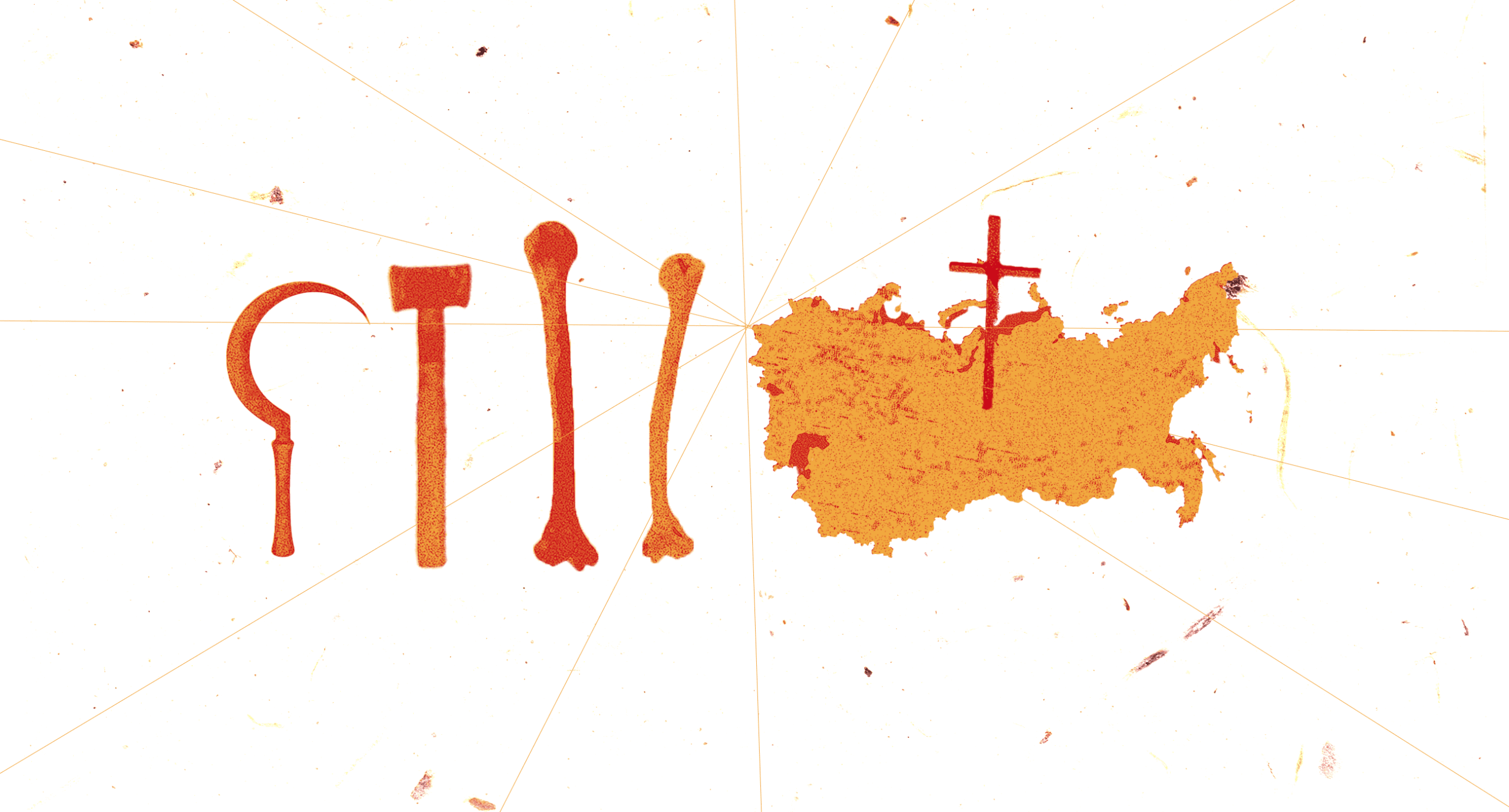
The Putin’s Russia reminds of Stalin big terror in oppressively treating its own citizens and of Nazis war crime towards the Ukrainians. Reason for that is the Russian’s inability to deal with its troubled collective past and the attempt to drag Ukraine into 20st century, Daniel Lekhovitser says. Exclusively for Zaborona he’s writing on Putin’s launching an ethnical cleansing and memoricide. Here are the reasons why the latter won’t happen.
A little less than 300 kilometers from Tomsk, in the town of Kolpashevo, on the Ob river, there is a low, but steep bank — it is called Kolpashevskiy Yar. On May 1, 1979, in honor of the Workers’ Day, an icebreaker passed along the river, eroding the shore undermined by floods: after the ship, corpses will float in front of the residents of the city, and children will find bones in the water.

The Ob river bank in May 1979 after the erosion of the burial. Photo: Wikimedia
In the late 1930s, the NKVD prison was located here: about 4 thousand people were shot, and the remains were buried near the shore. Residents of Kolpashevo knew what was happening to the repressed, but preferred to remain silent. 40 years after the May 1 incident, the authorities drove tugboats to the shore. They will finally wash away the burial with the help of screw-propellers. Together with the earth, the remaining corpses will fall into the water. They will be dismembered with the screws, and those carried further downstream will be caught by special brigades. Bricks and scrap metal will be tied to the bodies to drown them down. What hasn’t been mourned once can’t be mourned at all.
The history of the Soviet holiday, disrupted by the victims of the Soviet Great Terror of 1937-1938, seems surprisingly metaphorical. Totalitarian regimes with their punitive policy towards its own population and, in general,all great calamities within a whole country could be superimposed well on psychiatric terminology. In this regard, the history of the USSR cannot be considered in any other way than as a collective trauma that marked with birthmarks both its witnesses and subsequent generations. And like any welts not treated, it will worsenr over the years, and even return from the underground or dark waters, like the bodies of murdered political prisoners, no matter how deep down they are hidden.
It is curious that, in turn, trauma — long before the minting of the term by psychoanalysts — has always been an important part of the Gothic novel or ghost stories: a secret — usually shameful — that is carefully concealed, a body that is not honored with a proper burial, a debt not returned to the dead — the deeds instigating the dead to return in the form of a ghost. All these stories tell about shame, silence, lack of remorse, and finally, trauma, which is often embodied in the form of a ghost. And like the multiple returns of the spectre, the trauma always recurs, relives itself over and over again. In this sense, Russia is a large Victorian mansion, blown by an otherworldly ghostly draft.
Who recalls the old doings gets a prison term
When badgers dig their complex burrows connected by many passages, they pull out on surface everything that bars their way: roots, stones, rusty tires or glass fragments. So, thanks to badgers, a Russian historian Yuriy Dmitriev stumbled upon fragments of human bones in the Karelian forest, where for several years he had been looking for mass graves of prisoners shot by the NKVD. In the late 90s, Dmitriev discovered three mass graves in Karelia at once: on the Badger Mountain, in the Krasny Bor and Sandarmokh. For attempts to institutionalize the memory of the victims of Soviet terror, Dmitriev is now serving a term in prison on false charges. It seems that this example is enough to know how Russia treats the troubled past.

Sandarmokh tract. Remembrance Days.
Photo: Wikimedia
There is a certain rule of interaction with the dead and the past: both cease to haunt the living after being lamented, after the secret of their death is no longer hushed up. Argentina managed to come to terms with these ghosts, when the new government recognized the disappearance of 30,000 civilians during the Dirty War due to the military junta terror. Spain did this with great difficulty and in more than one decade — it developed the language that could describe the nightmares of the bloody Franco regime, and honor its victims. Poland, even mindful of helping Jews during the German occupation, apologized for the burning of Jews by the Poles in the village of Jedwabne. South Africa during apartheid had almost slipped into civil war twice, but was able to find tools for reconciliation and ways to talk about the collective trauma and massacres of blacks by whites, and vice versa. Ukraine admits that Ukrainians also took part in the executions at Babi Yar.
With the exception of African countries, Russia is the only state that is unable to deal with the traumatic past: unable to call the punitive policy of the USSR a crime against its own people — what Aleksandr Etkind called the colonization of its own country. In many ways, the failure to develop a memorial culture in Russia is reminiscent of the Spanish scenario with its so-called “pact of silence” — a mutual agreement “not to stir up” the past in exchange for relative democratic freedoms, concluded between the transit government that replaced the Franco’s dictatorship and the population (however, real Spanish memory boom happened in the 2000s).

Nurses give the Nationalist salute to General Francisco Franco (1892-1975), the leader of Spain’s Nationalist forces who defeated the Republican government after three years of civil war (1936-1939). Spain, 1938. Photo: Hulton-Deutsch Collection/Getty Images
Today, Russia is experiencing what some sociologists and memory studies scholars call the “Stalin complex” — the legitimization of the tyrant’s figure by the government and his growing popularity among the population. The fact is that Russian government officials — from Putin to Medinsky and Patriarch Kirill — resort to selective stressing some historical facts (or their interpretations) while ignoring others. For example, often in Putin’s speech one could hear theses that can be called historical bargaining: he recognizes Stalin’s repressions (however, this is a euphemism coined in Khrushchev era, which is must have been called the Great Terror), but suggests remembering “how much good” had been done in the 1930s-1940s years; recounts the mass executions not as systemic mechanisms, but as excesses of perpetrators; and sees the collapse of the Soviet Union not as the denouement of an unviable project fall, but “the largest geopolitical catastrophe of the century”, of course, provoked by the United States.

The convicts are sleeping in a sod-covered house in the Siberian GULAG.
Photo: Wikimedia
Due to the inability to overcome the “Stalin complex”, the government’s ideology is completely eclectic: fascism coexists with Christianity, and capitalism juxtaposes with communism. Finally, the inability to unequivocally define the history of the USSR as an unsuccessful project leads to an attempt to restore it by territorial expansion and war with Ukraine.
The trial against Yuriy Dmitriev, as well as the collapse of the shore at Kolpashevskiy Yar look like some hasty attempts to re-hide what was already badly hidden. Here we can also recall the destruction of registration and archive cards of GULAG prisoners in 2018 or the announcement of the Memorial organization, which studies the history of Soviet terror, a foreign agent. The Russian government is not just trying to push memorialization attempts to the periphery; it is launching a systemic memoricide — the killing of memory, the banal deletion of inconvenient pages of history; so the D-pupil tears out the pages of the school diary marked with a red pen.

Philosopher Pavlo Florensky was sentenced to ten years of hard labor in GULAG. He didn’t stay there for ten years. Three years after this picture was taken, he was taken into the woods and shot.
Photo: Wikimedia
Memory wars
In memory studies (an interdisciplinary course that studies collective memory and memorative culture), there is the concept of “memory wars” — the competition of seeing one historical situation by two or more countries, ethnic groups, or even two people. In this vein, Ukraine and Russia for thirty years have been waging a memorial war for the historical framework “what was the Soviet Union after all?” and the more complex dispute over Kievan Rus and Muscovy. Work on the difficult past is possible only under one condition — the democratization of society. So Ukraine was able to stop using the language of euphemisms: to separate the private Soviet life (those very “bright memories of the past”) from the political one, and call the USSR an inhuman system; call the Holodomor a genocide; in many ways, like Poland occupied by both the Nazis and the Soviets, Ukraine builds the image of a victim, but at the same time is ready to admit complicity of the crimes at Babi Yar. In Russia, such a memorative process is impossible because of the autocratic regime. The opposite conclusions have been drawn: Stalin turns out to be a legitimate figure both for the government and for society, the Soviet Union would have remained the superpower if it hadn’t been enfeebled by the West, e.t.c. Russia not only coexists with the ghosts, it is trying to drag neighboring country into the 20th century.

Soviet power does not punish, it corrects (The slogan on the wall of the former Red Corner punishment cell of GULAG). Found in the collection of State Museum of the Political History of Russia, St. Petersburg.
Photo: Fine Art Images/Heritage Images/Getty Images
Memoricide
It is unlikely that the Russian military command and political technologists have a plan to strictly follow the policy of the Third Reich — deportation of the population of the occupied territories to filtration camps, forcing prisoners of war to donate blood for soldiers, ethnic cleansing — rather, this happens naturally for the countries slipped into fascism. It is also important that the Ukrainian-Russian war has been marked with Nazi connotations: the relation to memory, more precisely, to its absence.
Genocide and ethnic cleansing are often accompanied by memoricide. Concentration camps in Poland were often built surrounded by woods far from large cities – most Germans did not really know about their existence, just as Poles. Known for the construction of V-2 rockets, the Dora-Mittelbau concentration camp was located in a mountain (hence the popular trop of military bases hidden in rocks or under a lake in spy films). All this is downright necessary to conceal the evidence.
Professor Ulrich Baer notes that the only evidence of Nazi crimes, before the camps were liberated by the Allies, were photographs taken by the Nazis. It was extremely rare for a prisoner to secretly take a photo. One might recall an artist Zoran Muzic, who made sketches from within a concentration camp, and then dug it in the ground. If the solution to the “Jewish issue” would have been successful, Germany would win, the concentration camps would be dismantled, and all documentary evidence would be destroyed, then in three or four generations, perhaps the new world would not know about the existence of Jews and Roma people. A mention of them could have been erased from history. Holocaust memory researcher Marianne Hirsch introduces the concept of “post-memory”: the memory of tragic events that are passed on to the next generations through oral evidence and most importantly, through visual documents. But if there were no such documentation, there would be no post-memory of the victims.

The bodies of political prisoners killed by the NKVD lie in a prison camp. Ternopil, Ukraine. July 10, 1941.
Photo: Wikimedia
The Nazis were able to cover up the genocide not only because of the remoteness of the camps, but also because of the inability to testify in the way that is now possible. The evidence destruction policy is also an important part of the Russian invasion, but they forget the existence of the ordinary smartphone. Mobile crematoria in Mariupol are not only the top of military cynicism; they seem useless. Memoricide in Ukraine is impossible because the war of the 21st century is a war of technology. The “no body, no crime” principle of mobile crematoria makes no sense if a surviving witness shares videos and pictures, a U.S. satellite captures the location of bodies in Irpin and Bucha every second, and pictures of the expanding mass graves in Mariupol are published in all world media.
Victor’s justice
Today you can often hear that the Russian General Staff and the political elite are waiting for a new Nuremberg trial. It is clear that Nuremberg being used more as a metaphor than as a real call for a similar trial. Just recall that the Nuremberg courts were a legitimate continuation of the war and a settling of scores, having little in common with jurisdiction: at least because among the accusers from the USSR and Great Britain were the same war criminals (recall the bombing of Hamburg and Dresden by the allies). Rather, talk of Nuremberg implies an externally imposed denazification procedure and processes for the German people to overcome the collective responsibility for the crimes of the government, which took at least 40 years.

Nuremberg Trials, defendants in the dock.
Photo: Wikimedia
In this regard, after the war with Ukraine, Russia will internalise two collective traumas at once: the insurmountable “Stalin complex”, which largely had led to the war, and a sort of the German scenario. Returning to post-war Germany, the philosopher Hannah Arendt wrote that the Germans primarily consider themselves as victims of the Third Reich, not Jews. Arendt’s tutor Karl Jaspers talked a lot about the fact that the Germans were not ready to shoulder the collective responsibility and looked for a figure to bear their involvement in Nazism.
At the same time, the German population refused to believe in genocide for many years, even after forced visits to cinemas showing documentary reports from concentration camps. Or even after allied-organized trips to the camps themselves. Anthropologist Monica Black, in her book A Demon–Haunted Land, writes that the impossibility of comprehending such an irrational tragedy as the Holocaust and the denial of responsibility in post-war Germany was so dramatic that the country had experienced a boom in mysticism and even set witch trials; a breakthrough of magical thinking that removes the burden of rational agreement with reality. A similar response, the reaction of denial is quite possible in Russia as well.
The path of the Germans was not easy. Germany’s first chancellor, Konrad Adenauer, laid the foundations for a policy of guilt and remorse that involved reparations. Chancellor Willy Brandt knelt at the monument to the victims of the Nazi regime in Warsaw, and his successor Helmut Kohl finally institutionalized at the level of museums and monuments the guilt of the former government against Europe. Post-war Russia will go through a different but similar process that involves all the complexities: denying the ethnic cleansing of Ukrainians, projecting responsibility onto someone else, and getting rid of attitudes about the exclusivity of the Russian path. Finally, let’s recall the mentioned Argentina, South Africa, Poland, Spain and Ukraine — work with a criminal or traumatic past is possible only with the democratization of society. Often this happens just after the war.

